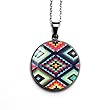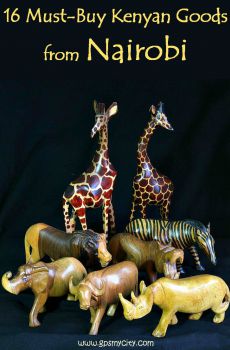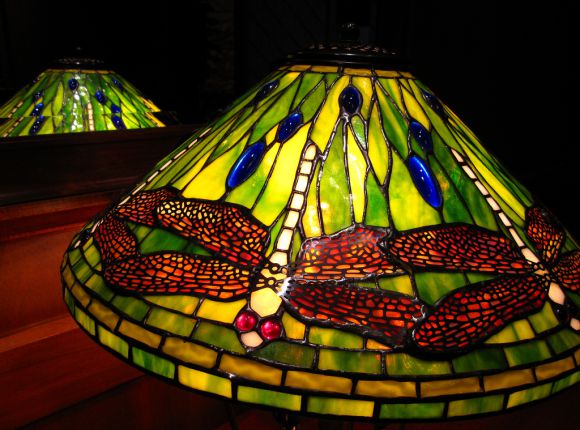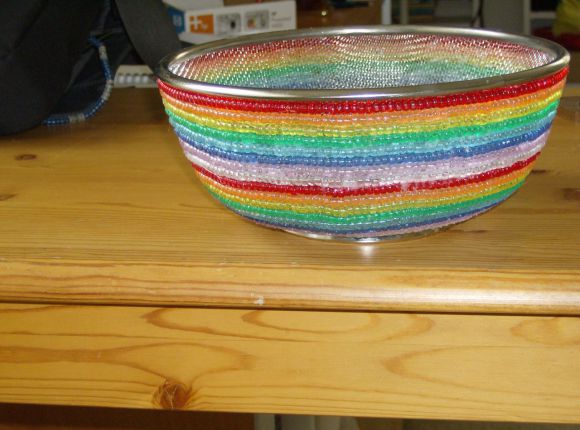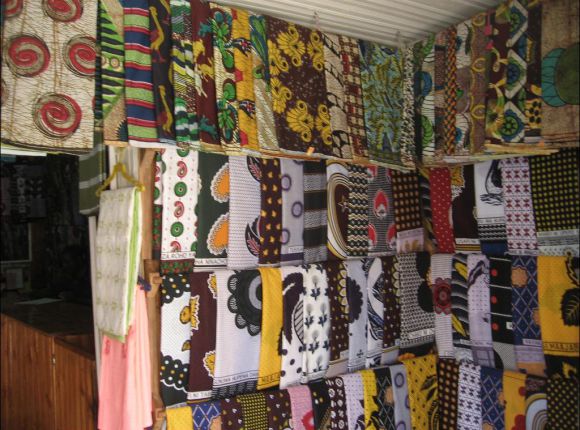1. Maasai Beads

Necklaces and bracelets made of beads have a special significance to the Maasai people, who use different colors and combinations to symbolize power, beauty and love. For example, red beads symbolize power and blood (a color fit for warriors), while green symbolizes fertility and prosperity (good for women). Beads are available in a number of forms. Necklaces are the most common, but you can also find bracelets, earrings, chockers and other products. Some of the bigger necklaces make great pieces of art that you can display at home.
The best way to buy Maasai beads is directly from the Maasai people. If you’re joining a safari, you’ll likely visit the Maasai Mara Game Reserve and the resident Maasai tribe. In the city, the best place to get beads is the Kazuri Bead Factory, on the land that once belonged to Karen Blixen (author of the “Out of Africa” book). The factory sells not only handmade ceramic beads, but also pottery and beaded products. They also have an outlet in the Westgate Shopping Centre in Nairobi.
Where to find it:
Kazuri Beads
Langata Rd, Nairobi, Kenya
+254 20 2328905
Opening hours: Monday - Saturday: 9 am - 6 pm;
Sunday: 10 am - 5 pm
Buy It on Amazon:
Offline reading and travel directions:
With GPSmyCity App you can read this article offline on your mobile device, use the embedded offline city map and GPS navigation, as well as create a self-guided walk to visit the venues featured in the article.
2. Kitengela Glass

Kitengela is an artists’ community located in Nairobi. It is the only community-based place for local disabled artisans, who produce a number of glass objects on-site, including decorative animals, jugs, vases and even stained glass windows. All the glass they use is recycled. Located opposite the Nairobi National Park, Kitengela is a destination in itself. You can literally spend hours exploring the grounds, stumbling along the mosaic pathways and into magical sculptures, such as giant oxes, glass murals and Hobbit-like structures.
Depending on how much you want to spend, you can go for small items (e.g. glass-beaded curtains, tableware items or suncatchers) or larger items (furniture covered with glass mosaics or stained-glass windows). Prices are more than reasonable. For example, a pair of hand-blown Kitengela glass earrings will set you back only U$12. The main place to shop for Kitengela Glass is the studio’s main location within the community, which is open seven days a week.
Where to find it:
Kitengela Hot Glass Ltd.
The Junction, Dagoretti Corner, Ngong Rd, Nairobi, Kenya
Opening hours: Monday - Saturday: 9 am - 6 pm;
Sunday: 10 am - 5 pm
Offline reading and travel directions:
With GPSmyCity App you can read this article offline on your mobile device, use the embedded offline city map and GPS navigation, as well as create a self-guided walk to visit the venues featured in the article.
3. Beaded Bowls
Besides being used for necklaces and other jewelry, the Maasai also use beads to make bowls, plates and other products used to carry everyday items. Some places will make items to order, so you can get anything - from coasters to wine baskets. Because each piece is hand-beaded to form the item, it can take weeks to finish a large bowl or decorative piece. The Goodie's African Interiors & Gifts shop is a great place to start your shopping. If you have time, you can custom-order your beaded bowl, specifying the size, color and type of beads (ceramic, glass, wood) you want. Otherwise, pick one of the bowls already on sale at the store. They go from U$5 for a small ashtray-size bowl to over a hundred for a fruit bowl. Bowls are unlined so they’re not meant to hold liquids or anything wet or sticky that could damage the bead work.
Where to find it:
Goodie's African Interiors & Gifts
Intrade Africa Place, Block B, Kauria Close, Off Muthangari Rd, Kenya
Opening hours: Monday - Saturday: 9 am - 6 pm
Buy It on Amazon:
Offline reading and travel directions:
With GPSmyCity App you can read this article offline on your mobile device, use the embedded offline city map and GPS navigation, as well as create a self-guided walk to visit the venues featured in the article.
4. Hand-Carved Wooden Sculptures

Traditional sculptures, such as the ones depicting “The Great Five” (lion, buffalo, elephant, rhino, and leopard) are a good choice, no matter the size. Giraffes are an especially-popular choice, but they tend to be very large (some up to 10 feet high), so you would have to plan the shipping well in advance. There are three types of woods traditionally used for wood carvings: mango trees, Neem trees and ebony. Ebony is rarer and more expensive, so if you’re on a budget, look for the other two options, which are lighter in both color and weight. Makonke carvings are considered the best and are made using mpingo or African blackwood. They are usually in the form of animals or busts (human figures). Because of their price and quality, Makonke carvings are only sold at fine galleries and shops in the city.
Head to Jigsaw Designs if you’re looking for large items. Jigsaw stocks carved items that go from small figurines, that would look good on a mantle, to four-poster beds and major objects of art made completely out of wood. Prices start at U$50 and up for the smaller items, so expect to spend some money there.
Where to find it:
Jigsaw Designs
Kanjata Rd,Parklands/Highridge, Kenya
Opening hours: Monday - Saturday: 8 am - 5 pm
Buy It on Amazon:
5. Blankets
Traditional Maasai blankets (also known as “Shukkas”) are made of either cotton or wool and are perfect for cozying up on the couch back home or as bed covers or even picnic blankets. To the Maasai people, these blankets constitute a very important piece of clothing, worn draped across the shoulders. Buying a blanket at a local Maasai market is probably the best idea, as you’ll get something more authentic and probably not mass produced. A traditional Maasai blanket is red blended with one other color, usually blue or black. Biashara Street is the place to go for shukkas at bargain prices. A basic blanket should not cost more than U$4, but prices can go up if you’re buying a blanket with a special design, batik applications or an extra-large size.
Where to find it:
Biashara Street, Nairobi, Kenya
Buy It on Amazon:
6. Kikois and Khangas

These sarong-like wraps (in male and female form, respectively) are made of colorful woven cotton and can be worn on the beach or used as a throw or curtain at home. Usually made of striped cloth, khangas are traditionally used as skirts or by women to carry babies as they work. Khangas often have a Swahili proverb printed on them. They make great gifts and won’t break the bank.
The best place to shop for kikois and tangas is either Biashara Street or Ngara Road. Rows upon rows of textile shops line up the streets, offering a sea of vibrant colors and patterns that can’t be beaten. Shopping at stores located here will ensure that you’re getting handwoven material with an authentic flavor, rather than the machine-produced stuff you would find at tourist shops. Atul’s General Merchants is an old-fashioned textile supplier on Biashara that sells cut-to-size kikois and khangas, as well as textiles by the yard. On Ngara Road, try Mansi’s Collections, which sells not only kikois and khangas, but also anything you would want to decorate your clothing with, including ribbons, beads, wooden buttons and other items. When walking down either street, keep your eyes open for the sidewalk vendors - they sometimes carry the most unusual and beautiful textiles.
Where to find it:
Biashara Street, Nairobi, Kenya
Atul’s General Merchants Atul's General Merchants
Tailors - General
Bldg 26, Gr Flr, Biashara Street, Nairobi, Kenya
Opening hours: Monday - Friday: 9 am - 5 pm;
Saturday: 9 am - 4 pm
Mansi’s Collections
Ngara Road, Nairobi, Kenya
Opening hours: Monday - Friday: 8 am - 5 pm;
Saturday: 8 am - 12 pm
Buy It on Amazon:
7. Baskets

Hand-woven baskets (known as kiondos) are a specialty of the Akamba women, who use them for anything, from carrying groceries to storing wood. The baskets come in all sizes and because they’re made of sisal (a traditional local fiber) and cotton threads, they’re durable but also soft and easy to pack for the flight home. Kiondos are made completely by hand, and it can take up to 3 weeks to finish one. Before they begin weaving, women boil and dye the sisal threads to make the multicolored kiondos. Once finished, some weavers add leather trimmings and handles or, sometimes, weave beads and shells into the kiondo.
Kiondos are available almost everywhere in Nairobi, from outdoor markets to antique stores to hotels souvenir shops. The Adelphi leather store in the Yaya Centre sells high-quality kiondos that can be customized with beads, drawstrings and other add-ons upon request. Their kiondos have a fabric lining (not part of traditional kiondos), which makes them suitable as handbags and to carry small objects without the risk of losing any of them. Cheap kiondos can be found for as little as a couple of dollars at markets, but the ones at Adelphi sell for U$15 and up.
Where to find it:
Adelphi leather store in the Yaya Centre
Argwings Kodhek Road, Nairobi, Kenya
Opening hours: Monday - Saturday: 9:30 am - 7 pm;
Sunday: 10:30 am - 7 pm
Buy It on Amazon:
8. Spears
A Maasai spear has a major role in the social and religious standing of a warrior. They are handcrafted using wood and adorned with colorful charms, leather thongs and carved wood accessories. The traditional Maasai spear is made up of three sections: the grip, the spear head and the metal butt of the head. All three pieces are held together by hardened wax. If you’re checking yours into your luggage, you can get a spear that comes without the added wax, so it can dissembled into 2-3 pieces for easy carrying. Depending on the material, quality and whether the spear was made for a warrior (which makes it more expensive) or directly for sale to tourists, spears can go for anywhere between U$30 and over U$500.
Traditional spears made by the Maasai people are sold at a number of markets, including the large Maasai Market. Smaller Maasai markets are mobile, which means they can be found in different areas of the city, depending on the day you go shopping.
Where to find it:
Maasai Market
Supreme Court, Nairobi, Kenya
Opening hours: Tuesday - Friday: 8 am - 6:30 pm;
Saturday, Sunday: 8 am - 7 pm
Yaya Shopping Centre
Argwings Kodhek Road, Nairobi, Kenya
Opening hours: 8 am - 9 pm
Village Market in Gigiri
Nairobi, Kenya
Opening hours: Daily: 8:30 am - 10 pm
9. Baobab Handbags
Handbags made from the bark of the Baobab tree are hand-woven and come with a leather strap. The baobab tree is very much respected in Africa because its trunk can hold thousands of liters of water, which can be lifesaving during long journeys or times of drought. The bark of the baobab tree can be removed without damaging the tree (the tree can regenerate it) and is used to make everything, from rope to clothing to musical instruments’ strings. Baobab handbags are a specialty in Kenya. They are similar to tote bags, with an open top, and usually measure at least eight inches in height, as they’re traditionally used to carry things and to go shopping. The double handle and any trim or decorations added are usually made of leather.
Baobab handbags can be found at Inside the Baobab shop. Here, you’ll find a multitude of products made of baobab, including handbags, book covers, cushions, briefcases and more.
Where to find it:
Inside the Baobab
Kilimani Dagoreti North, Kenya
Opening hours: Monday - Friday: 8 am - 5 pm;
Saturday: 8 am - 12 pm
10. Safari Chairs
What better way to remember Kenya than by bringing a piece of a safari trip back home? Safari chairs are made of light wood and have a canvas seat and back. Because they’re made to be used outdoors, the chairs are usually built with coated wood and water-resistant canvas. Many safari chairs, but not all, can be taken apart into small pieces that will fit into the luggage. Expensive ones make a great conversation piece, while the cheaper, foldable ones are ideal to take camping.
Marco Polo, a high-end shop located in the Karen Shopping Centre, is a great place to shop for safari chairs. Ashwood chairs with a natural oxhide cover sell for around U$100 and can be dissembled to be packed into your luggage easily. There are also chairs with solid brass fittings that fold but cannot be taken apart. These would have to be shipped separately.
Where to find it:
Marco Polo, a high-end shop located in the Karen Shopping Centre
Langata Road (Karen neighborhood), Nairobi, Kenya
Opening hours: Monday - Friday: 8 am - 5 pm;
Saturday: 8 am - 12 pm
11. Coffee

Kenya is East Africa’s largest producer of coffee, so it makes sense for you to take some home when visiting Nairobi. Kenyan coffee is Arabica-type, with strong acidity and fruity and wine-like undertones. Depending on where it’s grown and the type, you can expect anything from a spice-rich to a berry flavor to a sweet grape crispness. Get whole bean coffee rather than ground coffee, as the bean will maintain its full flavor for longer. This is especially important in the hot, humid weather of Nairobi.
For the best coffee in town, join a tour that takes you out to a coffee farm, where you can buy coffee directly from the farmers. The Kenya Nyeri Ngunguru and the Kenya Nyeri Hill Estate Peaberry produce two of the most popular coffee brands in the country and both run farms that can be visited. Ngunguru is set on a beautiful location, with inspiring views of Mt. Kenya on the background and tons of wildlife – including deer and hawks —roaming the area. The coffee from Peaberry is particularly good because it has a touch of cinnamon spice, which makes it unique. A pound of either coffee will set you back about U$9.
12. Soapstone Carvings

Carvings made from soapstone, or what the locals call Kisii stone, are available in a number of forms and designs, from vases and decorative art to dishes and other practical items you can use around the house. Kisii carvings are available all over the city, at markets, curio shops and souvenir shops. If you want something special, you can get yours from Undugu, a fair trade group that helps support street children and their families. Ungudu doesn’t have a set shop, but instead supports carvers who produce the figurines and art pieces in their own homes and yards and then sell them through the organization. If you contact Ungudu, they will direct you to the village of Tabaka, where workshops line up the streets and you can choose a piece before it’s even finished.
If you don’t want to get out of the city, the Zanzibar Curio Shop sells all types of soapstone carvings, as well as copperware and semi-precious stones. Prices vary widely depending on what you want to take home. A small basic figure of 10 inches or less can sell for as little as U$25, while more intricate pieces can sell for hundreds of dollars. Keep in mind that soapstone is heavy, so you might end up paying for extra weight in your luggage.
Where to find it:
Zanzibar Curio Shop
Hurumzi St, Zanzibar, Tanzania
Opening hours: Monday - Saturday: 9 am - 6:30 pm;
Sunday: 9 am - 12 pm
Buy It on Amazon:
13. Tribal Masks

A warrior mask is usually large in size and painted in bright colors. Instead, you can go for something smaller, such as an animal-inspired mask. Masks make a great addition to any décor, especially as wall hangings or table pieces. The most common material (and the cheapest) is wood, but if you’re willing to spend more, you can get metal, light stone or clay pottery masks. Keep in mind that the more intricate the design gets, the more you’ll have to pay for it. Painted masks are cheaper than those with added decoration, which can be anything from seeds to horns to sea shells. Masks made especially to be sold as souvenirs can be found for less than U$15, but the masks used in actual ceremonies are more costly. To tell the difference, look at the inside of the mask and search for signs of wear and discoloration, which indicates the mask was worn before. Try the City Market on Muindi Mbingu Street for the best prices and variety. The Zanzibar Curio Shop on Tom Mboya Street offers more variety, though prices might be a bit higher and you won’t be able to bargain.
Where to find it:
City Market
Muindi Mbingu Street, Nairobi, Kenya
Opening hours: Daily: 5 am - 9 pm
The Zanzibar Curio Shop
Moi Ave, Starehe, Kenya
Opening hours: Monday - Friday: 8 am - 5 pm;
Saturday: 8 am - 12 pm
Buy It on Amazon:
14. Kenyan Music
The Kenyan music scene is vibrant, rich and varied. Look for Kikuyu or Kamba pop, produced by the tribes of the same name, or buy traditional Maasai music, which doesn’t use any instruments and instead consists of namba, an exchange of tones, melodies and contrasting voices. If you don’t know where to start, get a CD of Joseph Kamaru, considered the biggest star in the history of Kikuyu. Les Kilimambogo Brothers Band and the Lower Mbooni Boys Band are good examples of Kamba pop. Another good option is to get a compilation CD of folk music, featuring namba and other vocal forms of traditional song. Pirated CDs are everywhere in Nairobi, but you risk getting poor quality (on top of breaking the law).
15. Sweet Beer
Traditional Kenyan beer is made from sugar cane and honey. The home-made, non-commercial version is known as muratina, which has a very unique, fruity flavor. Because muratina is technically the name of the homemade version, you have two options. Either read labels of locally-bottled beers and see if any of them contain muratina fruit as an ingredient or buy a sealed bottle of the homemade version from a local market. You can also try Tusker beer (locally known as “keroro”), which also has a light fruity and sweet taste, sort of like drinking sweetened malt with no bitterness and mild carbonation. The Serengeti Lager is technically original to Tanzania, but it’s another very popular choice in Kenya. This is a much sharper beer with a higher alcoholic content that still has fruity undertones.
Where to find it:
The River Café at the the Rosslyn Garden Centre
Limuru Road, 1/2 km after Village Market, Inside Karura Forest, Nairobi, Kenya
Daily: 7:30 am - 6:30 pm
16. Batiks
Batik is a hand-painted cloth that has been covered with a mixture of paraffin and beeswax. Originally, batiks were only used to decorate clothing, but can now be found on wall hangings, paintings and even throws. Traditional Kenyan batiks often have tribal designs and pictures of animals or the countryside. Batiks are made using different techniques, including stencils, etching and brush painting. The more intricate the design, the more you can expect to pay for it. A single yard of batik should set you back no more than U$20, though, especially if you’re willing to bargain for it.
One of the best places to get batiks in Nairobi is the Batik Heritage store. They sell batik by the yard, as well as a large number of batik products, including skirts, kikoys and wall hangings. The Zanzibar Curio Shop is also a great place to shop for batik, as well as safari wear, baskets and clothing.
Where to find it:
Batik Heritage store
Muindi Mbingu, Nairobi, Kenya
Opening hours: Daily: 8 am - 6 pm
The Zanzibar Curio Shop
Moi Ave, Starehe, Kenya
Opening hours: Monday - Friday: 8 am - 5 pm;
Saturday: 8 am - 12 pm
Other Interesting Souvenirs from Kenya
If traveling to Kenya is not on your immediate agenda, or you simply can't afford an extra space in your luggage, fortunately, these days, you can find a wide selection of authentic and truly interesting Kenyan souvenirs online. Presented here are some of the Kenyan products sought by foreign visitors, now available online for your convenience.
1. Kikoy - Authentic denim made of 100% hand-combed Kenyan cotton. Kikoys have many different uses including a wrap, blanket, towel, head wrap, and more. Kikoys can be also used as wall hangings or decorative elements to add color to the home or office interior.


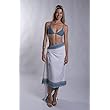
2. Handcrafted by Maasai Leather products - Genuine leather goods from Kenya are handmade, ethically sourced, highly-durable, and demonstrative of the centuries-old Maasai craft. They are produced in keeping with the Fair Trade rules.



3. Masai Footwear - Straight from Masai Mara, unique sandals (flip flops) made entirely by hand using natural materials processed in a strict accordance with the ancient traditions of Kenya's coastal people. The materials include high-quality cow leather with Masai cloth, which wrap around the ankle in a unique fashion. Wearing these sandals, your feet absorb all the energy of mother-nature, sea and sun, with glamour, comfort and casual elegance.



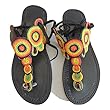
5. Kenyan Handcrafted Jewelry - Handcrafted by artisans of Kenya, sometimes simple in design, yet always sleek and stylish, this jewelry is good for any season; ideal as a gift to give or to keep for yourself. Ethically sourced and 100% handmade, these pieces of jewelry befit both, special occasions and everyday use.
